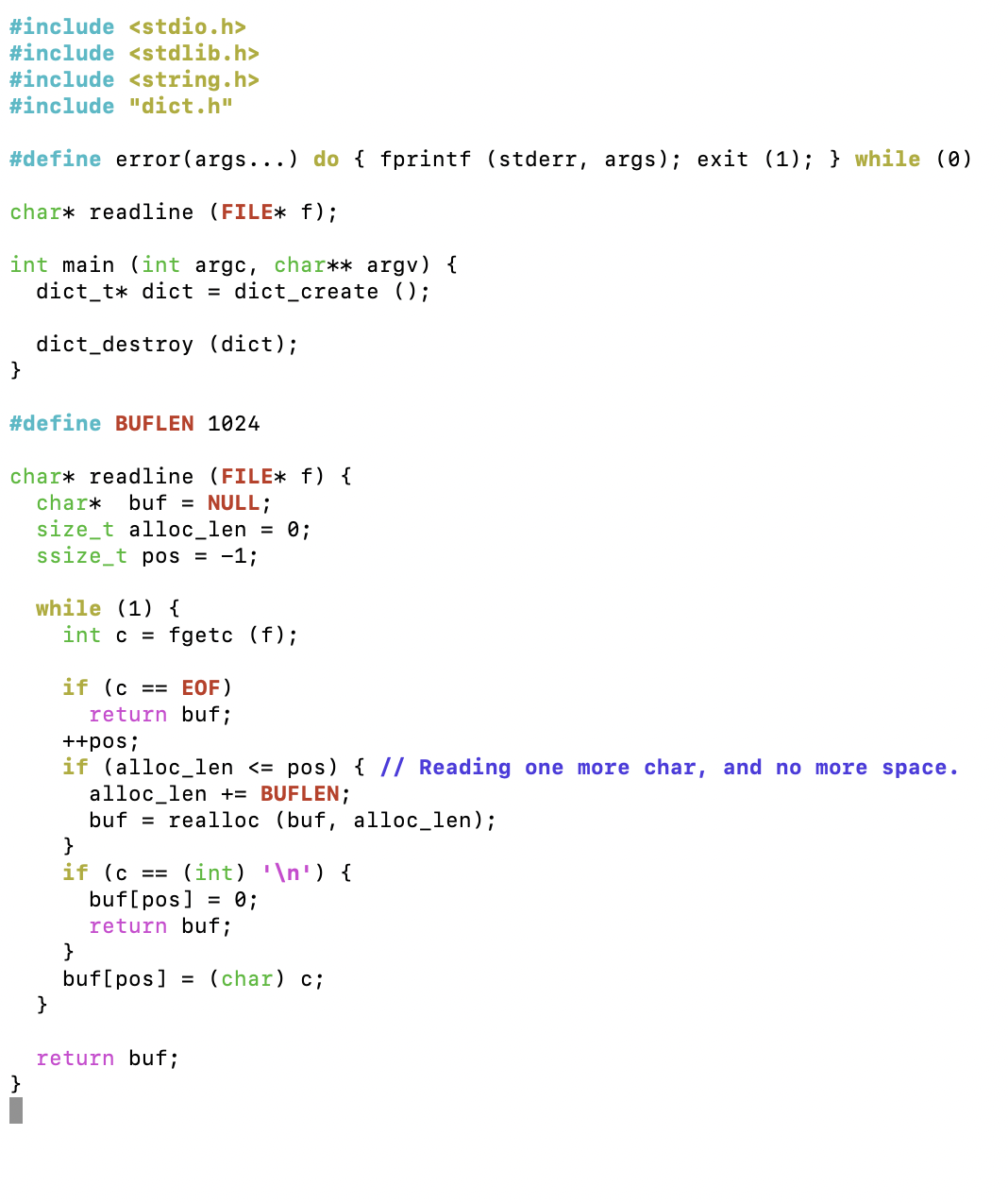Answered step by step
Verified Expert Solution
Question
1 Approved Answer
Part 3. You will add three more commands: dmp, which dumps the entire dictionary on the output, ldf, which loads a file containing dictionary entries,
- Part 3. You will add three more commands: dmp, which dumps the entire dictionary on the output, ldf, which loads a file containing dictionary entries, and svf, which saves the current dictionary in a file. Also, in Part 3, the executable will be taking files as argument, and load them.
MAIN.C

Step by Step Solution
There are 3 Steps involved in it
Step: 1

Get Instant Access to Expert-Tailored Solutions
See step-by-step solutions with expert insights and AI powered tools for academic success
Step: 2

Step: 3

Ace Your Homework with AI
Get the answers you need in no time with our AI-driven, step-by-step assistance
Get Started


